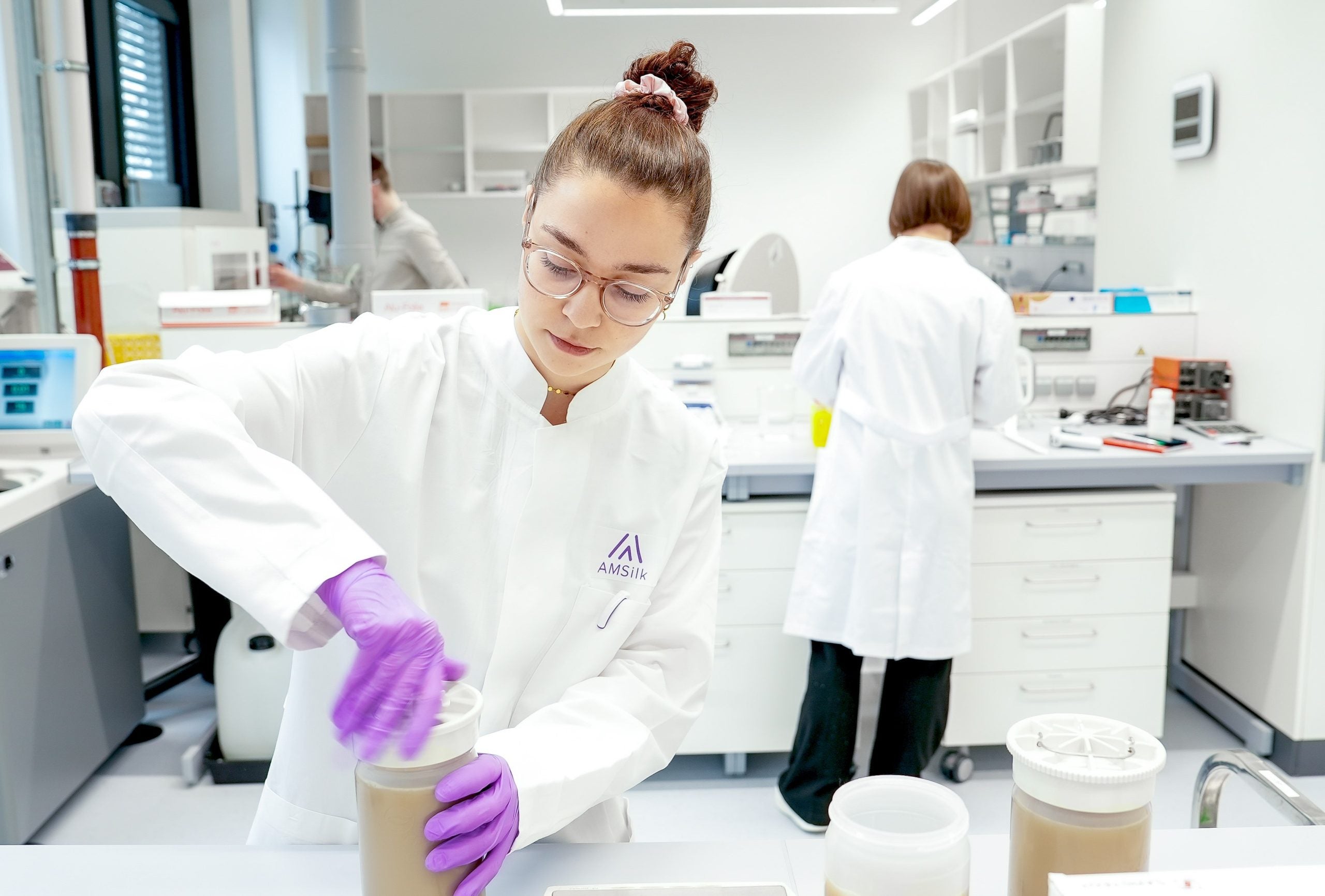
To ensure AMsilk can transition from laboratory to industrial-scale production and meet demands as it increases production, the partnership will use 21st.BIO’s newly developed protein production strain, made from highly specialised precision-fermented microorganisms.
The newly engineered strain claims to be an “extracellular expression of silk proteins,” to increase manufacturing productivity whilst reducing production costs.
Spider silk, known for its combination of strength and flexibility, is said to stand as a “gold standard of bio-industrial materials.”
AMSilk states its spider silk-based proteins are biodegradable and biocompatible, as it is derived from a renewable plant-based feedstock.
AMSilk fibres distinguish themselves by not containing any animal-origin substances and claim to contribute to a reduction in CO2 greenhouse gas emissions by up to 90%, along with over 90% less land and water usage compared to other protein fibres.
The collaboration has led to the development and optimisation of new production strains, fermentation, and downstream processes, paving the way for upscaled production and a significant reduction in unit costs.
This collaboration positions AMSilk to diversify its portfolio into various types of fibres and proteins, reaching a broader mid-market.
Gudrun Vogtentanz, chief scientific officer at AMSilk said: “Through 21st.BIO, we now have access to more efficient production strains, which are a game changer in terms of the efficiency and sustainability of our feedstock.
“Moving production quantities from kilos to tonnes brings AMSilk’s technology to the next level. This collaboration with 21st.BIO is key to accelerating time-to-market for AMSilk in the current scale-up phase.”
Ulrich Scherbel, CEO of AMSilk echoed Scherbel’s sentiments and believes AMSilk is succeeding in delivering high-performance precision fermentation at the right quality and cost.
The release explained that the collaboration comes at a time when global bioplastics production is set to more than triple by 2026, from around 2.4 million tonnes in 2021 to 7.5 million tonnes in 2026.
Thomas Schmidt, CEO of 21st.BIO added: “The world needs innovators and category shapers like AMSilk, and our job is to help them succeed.”
Per Falholt, chief scientific officer of 21st.BIO, commented: ” Our partnership has already led to some key milestone achievements, such as the world’s first extracellular expression of spider silk protein, which facilitates processes and enables manufacturing at unprecedented productivity levels.”
Leveraging its technology platform, AMSilk said it can customise material properties at a molecular level based on the final application or required properties and applications across diverse industries, including textiles, homecare, biomedicine, and automobiles.



